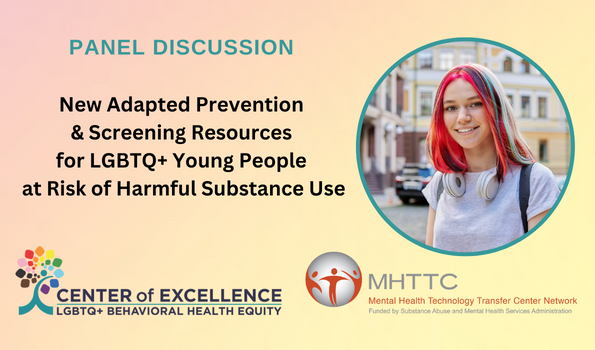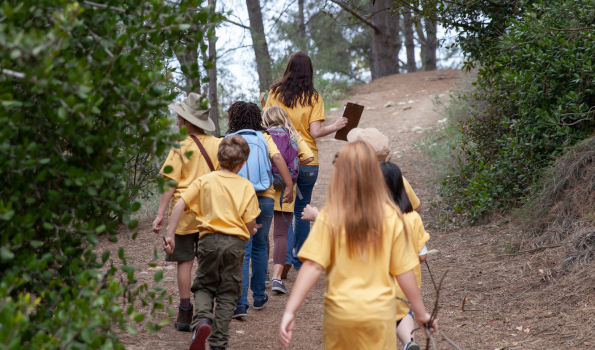Home > Tools for Creating Safe and Healthy Schools
Case identification and community case detection of mental health conditions or the risk of mental health conditions within a school setting, as outlined by the Substance Abuse and Mental Health Services Administration (SAMHSA), encompasses a comprehensive approach that combines responsible and trauma-informed screening and assessment in educational environments with the active involvement of key informants from students' homes and communities. Case identification and community case detection also refers to identifying the contributing factors that promote and endanger the health, welfare, and safety of school communities.
It should be noted that health incorporates mental/emotional health, which can be a result of social-ecological and trauma factors. Mental/emotional health can also be factors of health themselves. This person-centered and resilience-oriented strategy aims to elevate mental health awareness among those closely connected to students, enabling them to recognize signs of mental health issues effectively. Therefore, an effective case identification and community case detection tool should inform the development of a multi-tiered/social-ecological approach that distributes and applies resources along an approach continuum that includes health promotion, prevention, harm reduction, intervention and response.
Doing so ensures that individuals experiencing mental health challenges are promptly identified and connected with the appropriate resources and support. The efficacy of the strategies, distribution, and application of those strategies within communities should be measured by the distribution of resources (and strategies) aligned with the approach continuum. Effective identification and resource allocation should find shifting strategies (and resources) that are equitable and skew towards health promotion and prevention.
Below, we highlight several MHTTC-developed resources designed to help with case identification and community case detection – tools for creating safe and healthy schools. Other relevant resources that may be of interest are also highlighted.

Financing School-Based Mental Health Services: The Early and Periodic Screening, Diagnostic and Treatment (EPSDT) Medicaid Benefit | Southeast MHTTC
This infographic describes the Early and Periodic Screening, Diagnostic and Treatment (EPSDT) benefit, a rich benefit mandated to be covered in all Medicaid programs for youth. It also highlights key common misconceptions about EPSDT.

Identifying and Addressing Youth Anxiety in School-Based Settings | Mountain Plains MHTTC
This training provided free resources designed to assist school professionals in identifying anxiety in young people and provide strategies that address these anxieties and underlying worries. A significant focus of this presentation was on culturally adaptive-anxiety, and the mental health practices used to help youth address those issues.

Making the Case for Trauma-Informed Care in Schools | Great Lakes MHTTC
This training provided strategies for talking about trauma in schools, tips for self-regulation and self-care for trainers and school mental health professionals and needs assessment tools to determine the most important topics to focus on. In addition, the trainer shared implementation guidance for structuring and developing effective TIP training in your school.

School-wide Screening for Mental Health Concerns | South Southwest MHTTC
Schools are in a unique position to screen for social, emotional, and behavioral risks for students. This document provides guidance for schools on planning for school-wide screening activities and organizing their response to student risk through a multi-tiered system of support.

Take HEART Community of Practice-Compassionate School Practices: Vision, Plan, and Monitor for Success | New England MHTTC
In this session, school staff gained an understanding of how a compassionate school mental health support system can help schools create systems, policies, and protocols to prevent, address, and recover from tragedies and crises including staff or student suicide, school violence, natural disasters, and global pandemics.

Exploring the Consequences of Bias and Structural Racism in Service Disparities in Autism | Northwest MHTTC
This presentation addressed how structural racism and implicit bias have likely contributed to disparities in autism diagnosis, services, and outcomes, as well as posed potential solutions and next steps for the field to address these vexing issues.

Opportunities and Solutions to Implement Measurement-Based Care | Southeast MHTTC
Measurement-based care (MBC) is the ongoing use of student-, parent- and teacher-reported progress measures to inform personalized, collaborative, effective interventions. This session provided practical strategies to implement MBC in schools by sharing information on: (1) free, validated assessment measures; (2) tips on how to promote student and parent participation; (3) criteria for evaluating data system options; and (4) approaches to design effective training and ongoing support for your school mental health professionals.

Suicide Assessment and Response for K-12 Populations | Mountain Plains MHTTC
Participants in this session learned recommended best practices for assessing children and adolescents for suicide and initiating appropriate responses to youth experiencing thoughts of suicide in a K-12 school setting. Special attention was given to common screening and assessment tools used in school settings, best practices for utilizing an interdisciplinary team approach, and ways to identify risk and protective factors for youth and adolescents at risk of suicide.

Supporting Autistic Students in the Classroom and Other Mental Health Challenges: Your Questions Answered | Southeast MHTTC
The purpose of this two-part series was to build on the didactic content covered in our earlier learning sessions. In each session, we provided a very brief overview of the prior content we covered, had an in-depth discussion of one case example, and ample time for questions and open conversation related to the mental health of autistic students.

Trauma Informed Suicide Prevention: Leading School District, County, & State Systems - Policy | Pacific Southwest MHTTC
Session content focused on providing timely, effective, competent, and evidence-based suicide prevention support to students and families. Each session was contextualized with experience and suggestions from on-the-ground regional leadership.

Building and Strengthening School Mental Health Referral Pathways to Support Student Mental Health | Southeast MHTTC
This session was designed for local education agencies/school districts engaged in school mental health initiatives that provide students and families service referrals. The information is also relevant to state education agencies seeking to advance policies and procedures that ensure a full spectrum of services are accessible to meet student and family wellness needs.

Integrating Classroom WISE with a Social Emotional Learning (SEL) Framework | Great Lakes MHTTC
Many schools and districts are already addressing different aspects of school mental health by using various programs, practices and initiatives to support students. Classroom WISE was designed to integrate and enhance school mental health efforts to provide even greater assistance to students at both the prevention and intervention levels. This webinar illustrated the relationship between Classroom WISE and SEL.

New Adapted Prevention & Screening Resources for LGBTQ+ Young People at Risk of Harmful Substance Use | MHTTC Network
During this panel discussion, hosted in partnership with the Center of Excellence on LGBTQ+ Behavioral Health Equity and the MHTTC Network Coordinating Office, presenters discussed recent efforts to adapt and create prevention and screening resources to serve LGBTQ+ young people.

TRAILS: A Collaborative Model to Meet the Mental Health Needs of All Students | Great Lakes MHTTC
TRAILS (Transforming Research into Action to Improve the Lives of Students) is working to make effective mental health services accessible to all students with school-based solutions that are cost-effective and sustainable. Through training and ongoing support, TRAILS partners with schools to implement school-appropriate mental health programs grounded in techniques proven to promote students’ social and emotional competencies and reduce symptoms of anxiety and depression.

What Educators Need to Know: School-Based Suicide Prevention and Intervention | Mid-America MHTTC
Attendees learned best practices in school-based suicide prevention and intervention. Attendees gained knowledge on conducting skillful assessment in their buildings, as well as consultation, communication, and safety planning for suicide intervention.
Education Assessment Finder: Measuring social, emotional, and academic competencies
Guidelines: Pathways to Well-Being Referrals & Child and Family Team Meetings
Referral Pathways Protocol for Mental Health Supports
School Mental Health Referral and Triage Flow Chart: Team Process Model
School Mental Health Referral Pathways Toolkit
Universal Screening: A Statewide Approach | 2024 NWPBIS Conference (Tacoma, WA)